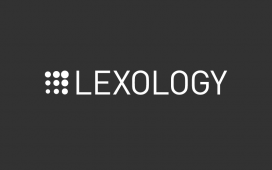According to a report from Monday, February 27th, the Securities and Exchange Commission subpoenaed the popular online broker Robinhood over its cryptocurrency offering. The subpoena was, reportedly, issued shortly after FTX filed for bankruptcy.
SEC Issed a Subpoena to Robinhood Soon After the Collapse of FTX
According to a Monday report, the online broker Robinhood received a subpoena from the SEC sometime after Sam Bankman-Fried’s FTX filed for bankruptcy. The exact aim of the Commission’s investigation is not yet known, but it relates to the broker’s cryptocurrency offering.
Robinhood started offering Bitcoin and Ethereum trading already in 2018, and by early 2023 its commission-free digital asset trading features a wide selection of tokens. The broker’s cryptocurrency trading volume saw a notable decline throughout the “crypto winter” of 2022 but the company has since reported a staggering jump in volume during the January rally.
The online broker already found itself at the receiving end of an SEC enforcement action. In late 2020, the Commission charged Robinhood with misleading its customers over revenue sources and with failing to satisfy its Duty of Best Execution. At the time, the platform agreed to settle and paid $65 million.
SEC Increasingly Targeting Digital Assets
Thanks to his aggressive approach to digital assets, SEC’s Chair Gary Gensler has come to be viewed as a bit of a villain by the online crypto community. His agency’s actions have also been met with criticism from outside the industry with representative Tom Emmer even calling it a “shakedown authority” at one point. However, according to a document published in January, the White House is pleased with the SEC’s handling of the crypto industry.
On its “warpath,” the Commission undertook enforcement actions against multiple well-known names in the industry most recently targeting the cryptocurrency exchange Kraken for its staking service. Additionally, while SEC has been targeting firms that held an initial coin offering (ICO) since the publication of the DAO Report, it also set a troubling precedent when it ruled that LBRY’s LBC also constitutes a security despite never being part of such an offering.
Despite the possible precedent set by the decision pertaining to LBC, SEC is, according to some experts, set to lose its long-standing lawsuit against Ripple Labs whose XRP token also was never part of an ICO. The agency also came under fire for its efforts—or lack thereof—after the scale of FTX’s fraud and misconduct was revealed in the aftermath of the exchange’s collapse.
This article originally appeared on The Tokenist











